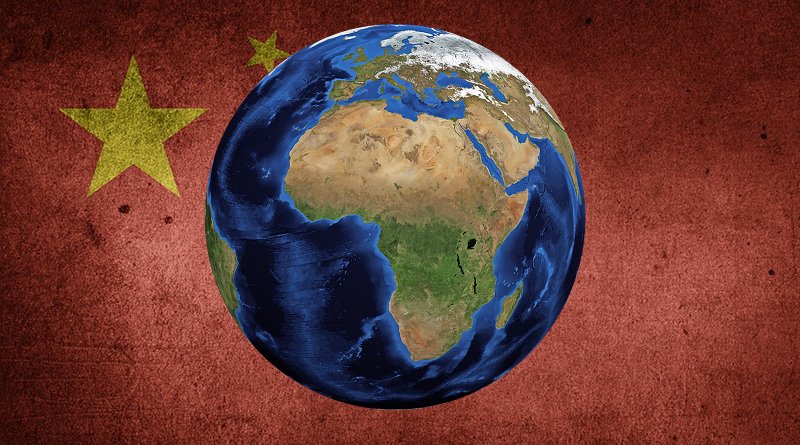The Beijing Consensus: Exporting Authoritarian Governance To Africa – Analysis
By Arman Sidhu
At first glance, the trade relationship between China and Africa appears relatively benign. In 2019, trade between the two was valued at $208 billion USD, with Chinese exports representing just over 54% of that figure. With pressures mounting from its ongoing trade dispute with America, Chinese exporters are scrambling for new markets. An expanding middle-class, coupled with strong industry demand for affordable capital goods, makes Africa an attractive destination for Chinese exports, particular in machinery and electronics. In return, African exports to China predictably consist of raw materials, primarily minerals, iron ore, and crude oil.
Over a decade has passed since China supplanted the United States as Africa’s largest trading partner. In the years since, Chinese engagement with the continent has evolved from bilateral trade and foreign direct investment into a sprawling number of infrastructure projects, in which both private and state-owned Chinese enterprises have taken the lead in financing and development. Nearly three-quarters of African states have signed cooperative agreements as part of Beijing’s grandiose Belt & Road Initiative (BRI). Save for Eswatini, China’s presence on the continent can be seen and felt in the form of a steady stream of Chinese expats, laborers, and businesses, a presence that elicits mixed feelings, ranging from memories of colonialism, to ecstatic appreciation of much-needed investment and expertise.
With its entrenchment in African markets nearly omnipresent, Beijing has ramped up one export that hints at a grander strategy: governance. Through means that range from scholarships for African students studying in Chinese universities, to explicit training and instruction for African politicians and their parties, China’s soft power appeal is gaining momentum. With its massive investment in training and educational programs, Beijing ensures the preservation of ties with the continent’s current leaders and cultivation with its future ones, a prudent strategy given Africa’s gerontocratic status as a continent ruled by the old, but mostly inhabited by the young, who make up over 60% of the continent’s population.
As part of its response to skeptics, Chinese officials dispute the assertion that China is attempting to export its governance model, often referred to as “authoritarian capitalism.” Nevertheless, the curricula used to educate African leaders suggests otherwise. Among topics surveyed by African bureaucrats are methods of influencing popular opinion, countering criticism, and organizing central-local cooperation for political parties. Additional tours and visits organized for African visitors tends to focus on glittering infrastructure projects and bustling urban business districts.
At its core, Beijing’s pitch for the “China model” promises the fruits of market-based policies, without necessitating sacrifice of single-party supremacy. As a result, China-trained cohorts include officials from the likes of South Sudan, Rwanda, and Uganda. Furthermore, exponential growth in Africa’s internet penetration rate and smartphone users has driven the impetus and demand for China’s training in the realms of censorship and surveillance. The ramifications of such training include an erosion of free speech and political opposition, in addition to providing another dimension of dominance for China’s tech industry, which already covers a large swathe of the continent’s telecommunications and consumer electronics sector.
Though adoration for the “China Model” may come easily for the continent’s autocrats, democracies with a tradition of single-party dominance, such as South Africa and Ethiopia, also boast a strong number of China-trained alumni among their bureaucratic ranks. Having earned plaudits from the likes of South African President Cyril Ramaphosa, Rwandan President Paul Kagame, and Ethiopian President Abiy Ahmed, China’s contribution to African development has matured past dollar diplomacy. Chinese input in statecraft can be seen in a myriad of ways, from formulating technical standards for African telecommunication networks to establishing Confucius Institutes that deliver instruction on Chinese language and culture, while neglecting sensitive topics that portray the Chinese government in a negative light.
For Beijing, the opportunity to train and interact with the continent’s leaders achieves two aims. First, the opportunity to educate the continent’s future leaders through scholarships accommodates Beijing’s desire to mold and shape its perception in the eyes of talented African students. Secondly, the programs serve as an extension of Chinese diplomacy, by strengthening ties with current leaders, as well as generating the goodwill necessary to safeguard existing Chinese interests and procure new ones, such as projects deemed essential to the BRI.
While several African delegations have benefitted from Chinese-led training in areas such as agriculture, climatology, advanced manufacturing, and biomedical science, encouraging the continent’s political parties to emulate the Chinese Communist Party is likely to backfire, by weakening already fragile institutions and sowing internal discord that could spark or deepen violent conflicts. The alignment of African parties along ethnic, linguistic, and religious lines is one of several elements that complicate implementation of an “authoritarian capitalist” agenda.
By attempting to adopt the more autocratic features of China’s governance model, African leaders place the future of democratic norms in jeopardy. The very same norms that once served as the rationale and rallying cry for the varied independence movements that spanned the continent throughout the 20th century and placed power back in the hands of Africans. Though the yearning for China-like growth and industrialization may lure African leaders, attempts to replicate similar results by copying Beijing’s playbook is likely to disappoint.
This article was published by Geopolitical Monitor.com

